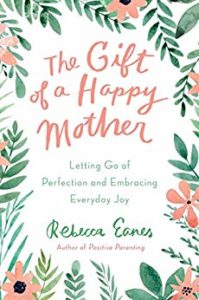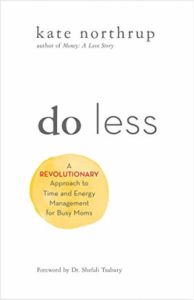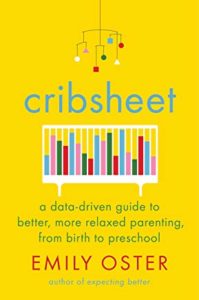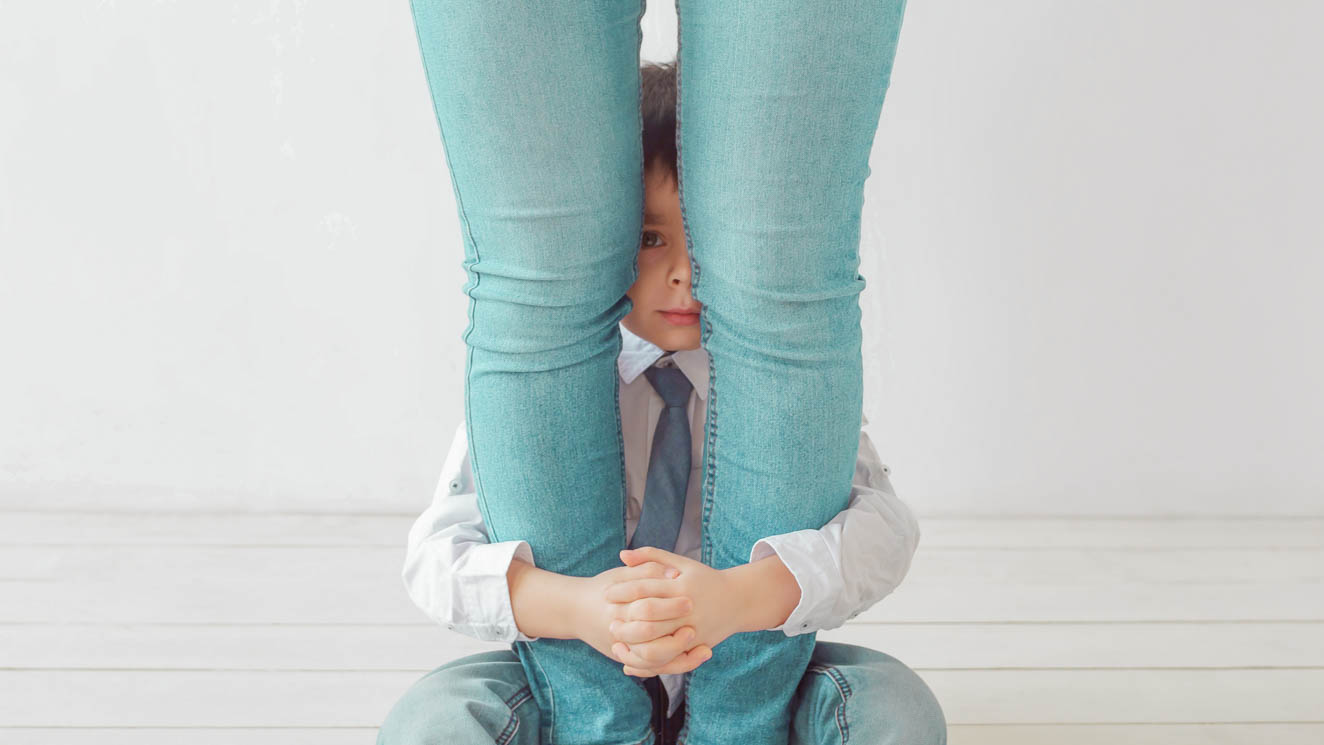

Yes, I’m often a stress-case, and it got to the point where I knew I needed to find ways to be a more relaxed parent. My four kids’ daily schedules often race around my head like those Alice in Wonderland tea cups at Disneyworld. I’m constantly replaying all the things I have to remember, like which kid has to bring in “special snack,” which kid has “Dress Down Day” and did my daughter pack her leotard? Sure, there are days when I’m calm, but I can’t explain why that is, and I certainly can’t predict it or claim to have any control over it whatsoever.
So how does one learn to be more a relaxed and balanced as a parent? Obviously this is a huge question, but the following four books are a great place to start. These authors tackle this challenge head-on with widely different approaches.
1) The Gift of a Happy Mother: Letting Go of Perfection and Embracing Everyday Joy by Rebecca Eanes

I’m trying to let go of perfectionism, perfectly. I tell myself that I don’t have to have up-to-date printed photo albums of the kids from each month, but, still, as the digital images pile up on my computer and phone, I start to freak out. I worry that I didn’t give the perfect gift to a close friend (is a salad bowl too random for a birthday?!) and then I worry that maybe I gave her that same thing last year. Now I’m worried that I’m failing at being a imperfectionist.
Eanes would tell me to GET REAL. Kids don’t want perfect moms; they want happy moms. And, of course, happier moms yield happier kids. As a parent in the thick of it herself, Eanes gives many tips that take into account that moms don’t have a lot of excess time or energy on their hands. Suggestions like incorporating a daily “10 minutes of joy” with a tracking system, lowering your expectations as a new mom, and learning to identify whether you’re “happily busy vs. hustling for worth” are just a few of the actionable tips that make this book extremely helpful. I wish I’d found it before my big kids were 12 years old. If I had, then maybe I wouldn’t have 157 photo albums to organize on my bookshelves.
 2) Do Less: A Revolutionary Approach to Time and Energy Management for Busy Moms by Kate Northrup
2) Do Less: A Revolutionary Approach to Time and Energy Management for Busy Moms by Kate Northrup
Multi-tasking clearly isn’t cutting it, Northrup argues. In fact, when we try to do too much, we do everything badly. She outlines how our menstrual cycles affect how we live and parent (bear with me here), then offers up truly concrete exercises, like “discover what really matters to you” in which you write down what is most important to you, then look over the past three months in your calendar to see what things actually serviced that value. This book is a bit out there at times, but it’s so interesting and user-friendly, with matrices to fill in and bulleted lists right at your fingertips.
 3) Cribsheet: A Data-Driven Guide to Better, More Relaxed Parenting, from Birth to Preschool by Emily Oster
3) Cribsheet: A Data-Driven Guide to Better, More Relaxed Parenting, from Birth to Preschool by Emily Oster
Oster’s key thesis: parents need to realize that they have far less control than they think they do. We tend to think that if we deliberate long and hard enough, we’ll come up with the “right” answer to our parenting-related questions, from whether to breast-feed to how to manage meal-time chaos. In reality, there’s hardly ever a clear-cut answer, and even if we try to attack a problem one way, our kids may have other ideas about what will work for them. Oster analyzes parenting from an economist’s point of view, providing data and research to arm every decision, plus she includes anecdotes from her own parenting experiences. Best of all, Cribsheet uses humor as often as data (one chapter is called “Trust Me: Take the Mesh Underwear” — and you really should take it) which is refreshing. This book is the owner’s manual I wish had come with my child. Now I just need a cribsheet for the upcoming teen years. Hear that, Emily Oster?!?!
 4) Grumpy Mom Takes a Holiday: Say Goodbye to Stressed, Tired, and Anxious, and Say Hello to Renewed Joy in Motherhood by Valerie Woerner
4) Grumpy Mom Takes a Holiday: Say Goodbye to Stressed, Tired, and Anxious, and Say Hello to Renewed Joy in Motherhood by Valerie Woerner
Val’s mom-to-mom tips are relatable, funny, spiritual and always useful. Her first chapter, “Emoji Overload,” sets the stage for mom-commiseration by sharing her story of being trapped at her sister’s house during a three day-long storm and flood, with a toddler and a three-month-old, no toys and a dwindling supply of diapers. She introduces the ideas of emotion-excavating and pattern-recognition. One of her tips is “talk to a mom a generation ahead of you,” which I love. This book offers perspective and balance about daily #momlife issues with context, depth, and great visuals.







